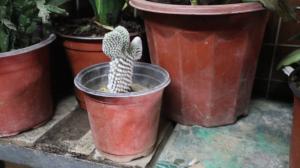Can I Eat Tomatoes if Black Walnut Killed Plant?
Black walnut trees are known to produce chemicals that inhibit the growth of other plants around them, a process known as allelopathy. This phenomenon can affect the growth and yield of many crops, including tomatoes. But can eating tomatoes grown near black walnut trees be harmful to human health?
The Effects of Black Walnut Trees on Tomato Plants
Black walnut trees release a chemical called juglone, which is toxic to many plants, including tomatoes. The trees release juglone through their leaves, roots, and bark, and it can remain in the soil for several years after the tree has been removed. Juglone affects the growth, development, and yield of plants, causing them to wilt, yellow, or die.
If your tomato plants are growing near a black walnut tree, they may be affected by juglone. You may notice that the leaves of the tomato plants are yellowing or wilting, and the fruit may be small or misshapen. In some cases, the plants may die before producing any fruit at all.
Is it Safe to Eat Tomatoes Grown Near Black Walnut Trees?
Despite the potential for juglone to affect the growth of tomato plants, it is generally considered safe to eat tomatoes grown near black walnut trees. According to the University of Maryland Extension, the amount of juglone that is transferred to the tomato plant is not significant enough to cause harm to humans. In fact, juglone breaks down quickly in the digestive system and is unlikely to cause any adverse effects.
However, if you are concerned about the potential for juglone in your tomatoes, you can take some precautions to minimize the risk. These include:
Plant your tomato plants as far away from black walnut trees as possible
Use raised beds or containers to grow your tomatoes
Amend the soil with activated charcoal, which can help neutralize the effects of juglone
Conclusion
Black walnut trees can have a significant impact on the growth and yield of tomato plants, but the amount of juglone that is transferred to the fruit is generally considered safe for human consumption. If you are concerned about the potential for juglone in your tomatoes, there are several precautions you can take to minimize the risk. By following these guidelines, you can enjoy delicious, homegrown tomatoes without worrying about the effects of black walnut trees.

 how many times do yo...
how many times do yo... how many planted tre...
how many planted tre... how many pine trees ...
how many pine trees ... how many pecan trees...
how many pecan trees... how many plants comp...
how many plants comp... how many plants can ...
how many plants can ... how many plants and ...
how many plants and ... how many pepper plan...
how many pepper plan...
































